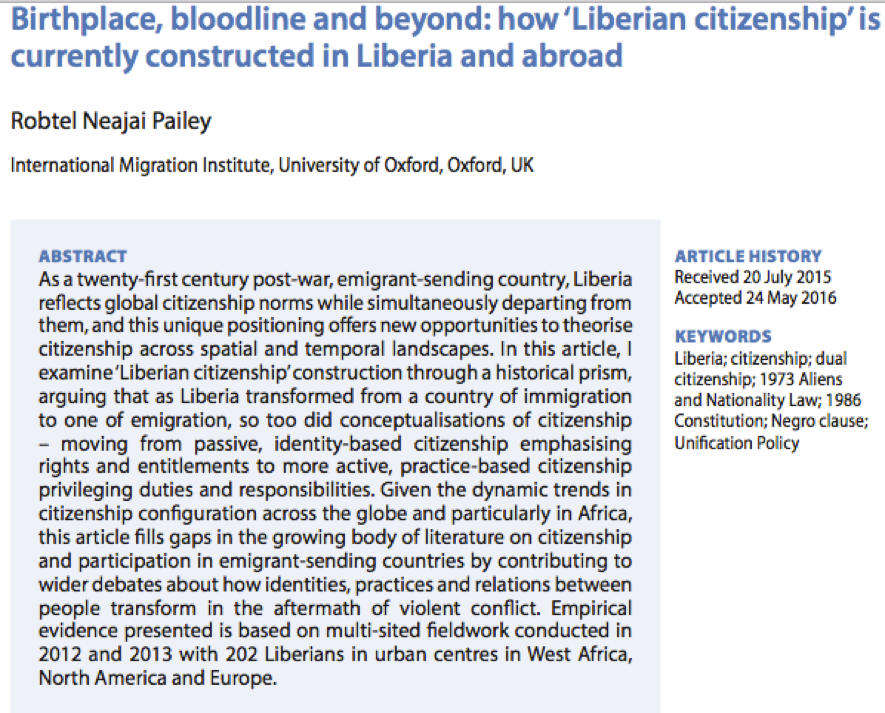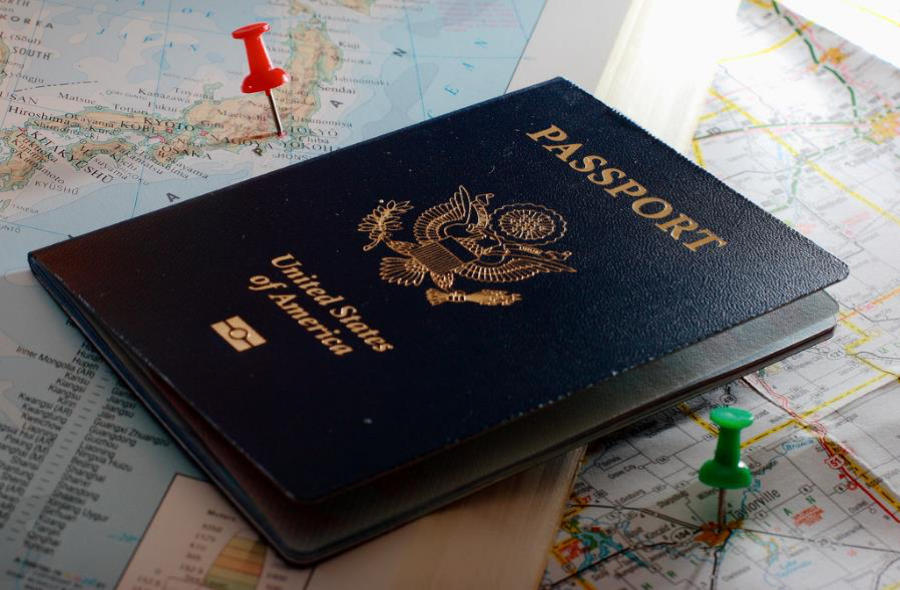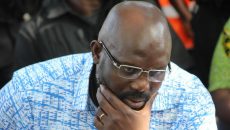When President George Weah announced in his inaugural address to the legislature last month that he would actively advocate for the passage of a contested dual citizenship bill and the removal of a so-called “racist†Negro clause from Liberia’s Constitution, I was bombarded with calls and e-mails.
At the time I was attending the African Union Summit in Addis Ababa, Ethiopia, so I felt naturally distracted. Instead of reacting immediately, I read with interest the avalanche of responses either supporting or rejecting President Weah’s statements—from Liberians at home and those further afield in diasporic hotspots.
Just as I’d expected, however, most of the retorts were based on sentiments, rather than evidence. They echoed the anxieties and aspirations of the 200+ Liberians I had interviewed from 2012 to 2013 in Monrovia, Accra, Freetown, DC, and London while collecting data for my PhD thesis—a transnational study of constructions and practices of Liberian citizenship across space and time and their myriad implications for development.
Completed in 2014, my thesis is the first comprehensive scholarly investigation of the promise and peril of dual citizenship for Liberia, based on fieldwork conducted in five countries spanning three continents, during which I spoke to Liberian officials of government, homelanders, returnees, and diasporic Liberians, as well as Sierra Leonean policymakers. I embarked on this study because I wanted to fill an important gap by elevating our public discourse and policymaking around citizenship. Since then, I have published two scholarly journal articles in *Citizenship Studies and *Migration Studies and a book manuscript is forthcoming.
As I discovered during my three-year Ph.D. research, contemporary sensitivities around citizenship are deeply embedded in Liberia’s long history of political, economic and social exclusion, which have yet to be resolved 170 years on. I learned that the pessimism expressed by those who support the ‘Negro clause’ and reject dual citizenship is just as valid as the optimism of those who eschew the clause and champion dual citizenship.
And so, the proof of President Weah’s clout will lie in his ability to reconcile these competing, yet equally legitimate perspectives. He must not succumb to the pressures of lobbyists who have their own agendas. As we continue to navigate our controversial, yet fascinating, legal provisions around citizenship, I urge President Weah and others to read my findings because they reveal important insights across the wide citizenship-dual citizenship continuum.
Evidence is needed now more than ever before.
Watch this space.

Figure 1: Screenshot of Pailey’s abstract in the journal Citizenship Studies

Figure 2: Screenshot of Pailey’s article abstract in the journal Migration Studies.
*E-mail the author at robtel@robtelneajaipailey.com for full copies of the journal articles on citizenship and dual citizenship.



